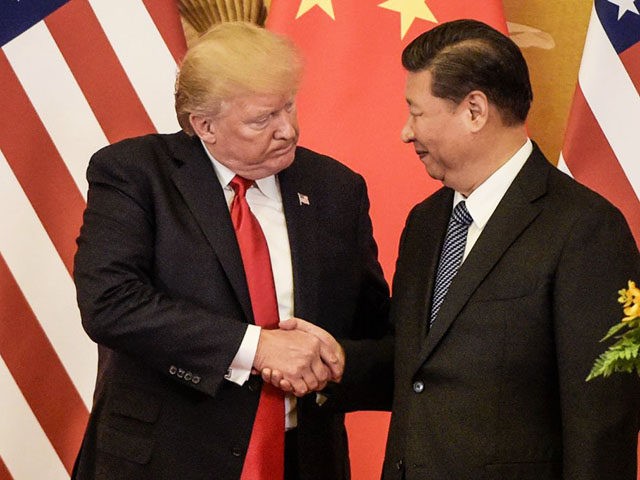China has embarked on a high-stakes strategy that makes it very unlikely to agree to a deal quelling trade tensions with the U.S. before the 2020 presidential elections, many investors and China watchers say.
The plan that appears to have emerged in Beijing is to keep trade talks going while avoiding any real reforms or enforceable deals until after the election, according to several reports. At that point, China could find itself facing a new administration that would likely be far easier to cut a deal with than President Donald Trump.
Under this scenario, China would tolerate the short-term economic pain inflicted by tariffs in order to preserve its long-term strategy of deploying predatory mercantilism in pursuit of global economic dominance.
“Many investors have expressed the view that China is prepared to accept an economic downturn (and thus a global economic downturn) to prevent President Trump’s reelection,” Naka Matsuzawa, Nomura’s chief rates strategist in Tokyo, wrote in a note on Wednesday.
China also hopes that trade tensions and its retaliation will hurt the U.S. economy, perhaps enough to tip the balance against Trump’s reelection.
“China’s leaders appear to have concluded that they won’t secure an acceptable trade deal with President Trump,” Nathaniel Taplin explained in a recent column for the Wall Street Journal. “What they can do is try to weather the next 18 months while inflicting maximum political damage—and hope a weakening U.S. economy delivers a new president.”
“Trump’s actions have seriously agitated the Chinese leadership, who now realize that there’s no chance of reaching a fair deal with the U.S.” for the foreseeable future, Shi Yinhong, an international relations professor at Beijing’s Renmin University, recently told the Wall Street Journal. “China is not just preparing for a protracted trade war, but also an escalating conflict.”
Not everyone agrees that a trade deal is impossible before the election. Michael Pillsbury, the author of The Hundred-Year Marathon and an adviser to Trump on China, said on Wednesday that a deal could come about because of the mutual respect Trump and Chinese President Xi Jinping have for each other.
“I’m quite optimistic about the talks because they have gone so well until May,” Pillsbury said in an interview on CNBC.
Trade tensions have escalated in recent weeks, defying expectations that they would lift as officials from China and the U.S. resumed talks. Chinese officials walked out of the first round of face-to-face talks early once it became clear that the U.S. was not ready to immediately eliminate or cut tariffs on Chinese goods, lift sanctions on Huawei, and drop criminal charges against its chief financial officer, according to a person briefed on the matter.
After U.S. officials returned from that meeting, Trump announced the U.S. would extend tariffs to an additional $300 billion of Chinese goods. China said it had halted purchases of U.S. farm goods in response and threatened additional tariffs on agricultural products. On Monday, China allowed its currency to depreciate against the dollar to the lowest level in a decade, sparking fears of a currency war and sending U.S. stocks tumbling. The U.S. Treasury officially labeled China a currency manipulator in response.
The state-run media in China have been filled with invective against Trump, echoing U.S. media claims that the president is racist and also accusing the U.S. of fomenting the protests in Hong Kong.
The turn toward trade belligerence likely has many causes. Xi is reportedly under pressure from Communist Party hardliners and does not want to appear weak by giving into U.S. demands. And criticism of Trump’s trade policies from Democrat presidential hopefuls in the recent debates has created the hope that a new president would go easier on China. What’s more, the reaction of U.S. financial markets to China’s retaliation has convinced some Chinese policymakers that the U.S. is vulnerable to trade pressure.

COMMENTS
Please let us know if you're having issues with commenting.